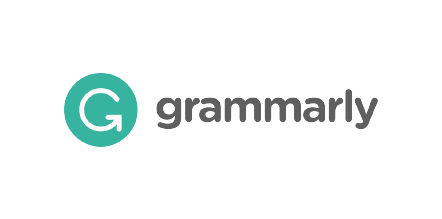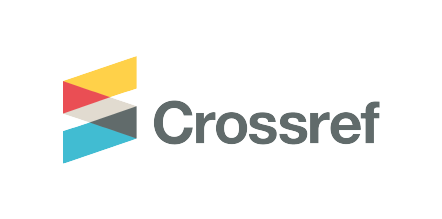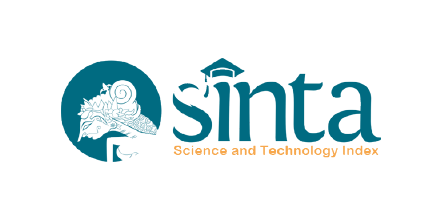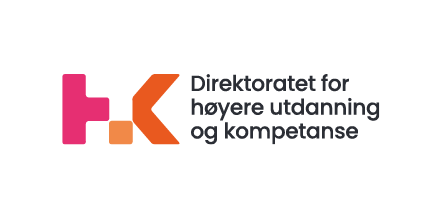The Influence of Reciprocal Teaching Towards the Critical Thinking Skill Improvement of Blind Students
DOI:
https://doi.org/10.21776/ub.ijds.2020.007.02.14Keywords:
Keywords, Critical thinking skill, reciprocal teaching, visually impaired student.Abstract
This study aims to determine the influence of reciprocal teaching application in improving the critical thinking skill of visually impaired student in SLB-A YKAB Surakarta on the academic of year 2019/2020. This study is classified as pre-experimental research with the form of one group pretest-posttest design. The Subjects in this study were seven students from 5th-9th grades in SLB-A YKAB Surakarta. The seven students became the research subjects after being selected using purposive sampling technique. Some subject criteria set in this study include: visually impaired student who have reached formal operational stage according to Piaget’s theory, were able to read, write, listen, and speak fluently, and have problems in developing critical thinking skills. Data collection in this study was done through observation and oral test. The instrument used in this study was validated by measurement expert, psychologist, and linguist and was tested to visually impaired students in SMP MIS Surakarta. The results of expert validation and instrument trials indicate that this instrument was valid with a validity coefficient of 0.92-1 and reliable with a reliability coefficient of 0.975. Then the instrument was used to measure the critical thinking skill of research subject before and after being given treatment through the application of reciprocal teaching. The pretest and posttest data were analyzed using non-parametric statistic with Wilcoxon Sign Rank Test type at the significance level of 0.05. According to the data analysis using SPSS 25, the Asymp. Sig (2-tailed) value was obtained of 0.017. That value was smaller than 0.05, so that H0 was rejected and Ha was accepted. Thus, the application of reciprocal teaching has a significant effect towards the critical thinking skill of visually impaired student in SLB-A YKAB Surakarta on the academic of year 2019/2020.
References
Afidah, N. & Andajani, S. J. (2015), Pembelajaran Kooperatif Think Pair Share terhadap Hasil Belajar Matematika Siswa Tunanetra Kelas V SLBA, Jurnal Pendidikan Khusus, Vol. 7, Page 1-8.
Agustinova, D. E. (2015), Memahami Metode Penelitian Kualitatif Teori dan Praktik, Calpulis, Yogyakarta.
Aizikovitsh-Udi, E. & Cheng, D. (2015), Developing Critical Thinking Skills from Dispositions to Abilities: Mathematics Education from Early Chilhood to High School, Scientific Research Publishing: Creative Education, Vol. 6, Page 455-462.
Arikunto, S. (2006), Prosedur Penelitian: Suatu Pendekatan Praktik, Rineka Cipta, Jakarta.
Arikunto, S. (2012), Dasar-Dasar Evaluasi Pendidikan, Bumi Aksara, Jakarta.
Arikunto, S. (2013), Prosedur Penelitian: Suatu Pendekatan Praktik, Rineka Cipta, Jakarta.
As'ari, A. (2014), Ideas for Developing Critical Thinking at Primary School Level, International Seminar on Addressing Higher Order Thinking: Critical Thinking Issues in Primary Education, Islamic University of Muhammadiyah Makasar, Makasar.
Azwar, S. (2017), Reliabilitas dan Validitas, Pustaka Pelajar, Yogyakarta.
Facione, P. A. (2020), Critical Thinking: What is it and Why it Counts, Insight Assessment, Pearson Education.
Fajarwati, M. S. (2010), Penerapan Model Reciprocal Teaching sebagai Upaya Meningkatkan Pemahaman Konsep Matematika Siswa Kelas XI Akuntansi RSBI (Rintisan Sekolah Bertaraf Internasional) di SMK Negeri 1 Depok, Thesis that not Published, Program Studi Pendidikan Matematika, Universitas Negeri Yogyakarta, Yogyakarta.
Friend, M. & Bursuck, W. (2015), Menuju Pendidikan Inklusi: Panduan Praktis untuk Mengajar, Pustaka Pelajar, Yogyakarta.
Hadi, P. (2005), Kemandirian Tunanetra, Depdiknas Dirjen Dikti, Jakarta.
Hasnunidah, N. (2017), Metodologi Penelitian Pendidikan, Media Akademi, Yogyakarta.
Huda, M., Susilo, H., & Sa'dijah, C. (2017), Keterampilan Berpikir Kritis dalam Penerapan Reciprocal Teaching, Prosiding Seminar Nasional Mahasiswa Kerjasama Direktorat Jenderal Guru dan Tenaga Kependidikan Kemendikbud, Universitas Negeri Malang, Malang.
Johnson, E. B. (2010), Contextual Teaching and Learning: Menjadikan Kegiatan Belajar Mengajar Mengasyikan dan Bermakna, Kaifa, Bandung.
Korir, B. C. (2015), Challenges Encountered by Students with Visual Impairment and Teachers in an Integrated School Environment: A Case of Integrated Secondary School in Kericho District, Ainamoi Division, Kenya, International Journal of Education, Learning & Development, Vol. 3, Page 28-40.
Liputan 6, (2018), Hadapi Revolusi Industri 4.0, Kemendikbud akan Rancang Ulang Kurikulum, http://liputan6.com, accessed at Tuesday, January, 14th 2020, 12.00 WIB.
Maindi, A. D. (2018), Challenges Face by Student with Visual Impairment When Learning Physics in Regular Secondary School, International Journal of Education, Learning, and Development, Vol. 6, Page 38-50.
Mardliyah, A. A. (2019), Budaya Literasi sebagai Upaya Peningkatan Kemampuan Berpikir Kritis di Era Industri Revolusi 4.0, Prosiding SNP2M (Seminar Nasional Penelitian dan Pengabdian Masyarakat), Unim.
Meranti, T. (2015), Psikologi Anak Hiperaktif, Familia, Yogyakarta.
Okezone. (2018), Penyandang Disabilitas di Indonesia Mencapai 9 Juta Jiwa, http://okezone.com/read/2015, Accessed at Tuesday, January, 14th 2020, 12.30 WIB.
Park, H. M. (2008), Univariate Analysis and Normality Test Using SAS< Stata, and SPSS, Working Paper, The University Information Technology Services (UITS) Center for Statistical and Mathematical Computing, Indiana University.
Rukajat, A. (2018), Pendekatan Penelitian Kuantitatif: Quantitative Research Approach, Deepublish, Yogyakarta.
Sampurnajaya, M. T. B. & Ambarita, A. (2016), Statistik Terapan dalam Pendidikan, Media Akademi, Yogyakarta.
sardin. (2019), Meningkatkan Kemampuan Komunikasi Matematika melalui Model Reciprocal Teaching, Jurnal Penelitian Pendidikan dan Pengajaran Matematika, Vol. 5, Page 41-46.
Sugiyono, (2012), Metode Penelitian Kuantitatif, Kualitatif, dan R&D, Alfabeta, Bandung.
Sunanto, J. (2005), Potensi Anak Berkelainan Penglihatan, Departemen Pendidikan Nasional, Jakarta.
Trianto, (2010), Mendesain Model Pembelajaran Inovatif Progresif, Prestasi Pustaka, Jakarta.
Trihendradi, C. (2012), Step by Step SPSS 20: Analisis Data Statistik, Andi Offset, Yogyakarta.
Triwiaty, R. & Assjari, M. (2017), Program Literasi Sekolah untuk Meningkatkan Kemampuan Membaca Siswa Tunanetra SDLB Di SLB Cimahi, Jassi Anakku, Vol. 18, Page 51-56.
Triyono, (2003), Teknik Sampling, Penataran Analisis Data bagi Dosen PTS Kopertis, Kalimantan.
Uziadah, I. (2015), Pengaruh Penerapan Strategi Reciprocal Teaching terhadap Keaktifan Belajar Siswa Kelas VIII SMP Negeri 1 Kaliwedi, Thesis that not Published, Institut Agama Islam Negeri Syekh Nurjati, Cirebon.
Wahab, A. A. (2017), Metode dan Model-Model Mengajar Ilmu Pengetahuan Sosial, Alfabeta, Bandung.
Werang, B. R. (2015), Pendekatan Kuantitatif dalam Penelitian Sosial, Calpulis, Yogyakarta.
Yuliardi, R. & Nuraeni, Z. (2017), Statistika Penelitian + Tutorial SPSS, Innosain, Yogyakarta.
Yunita, Santosa, & Ariyanto, (2011), Penerapan Pendekatan Pengajaran Terbalik (Reciprocal Teaching) untuk Meningkatkan Kemandirian Biologi Siswa Kelas VII-G SMP Negeri 5 Karanganyar Tahun Pelajaran 2010/2011, , Vol. 3, Page 43-54.
Downloads
Published
How to Cite
Issue
Section
License
Copyright (c) 2020 Novi Indriastuti, Sugini Sugini, Mohammad Anwar

This work is licensed under a Creative Commons Attribution-NonCommercial 4.0 International License.















